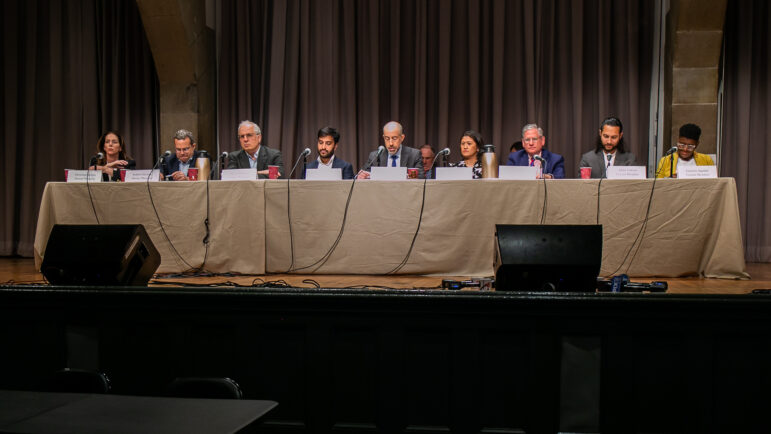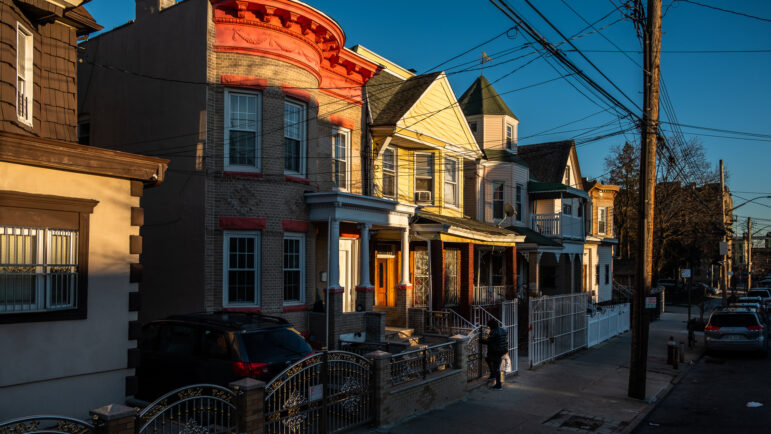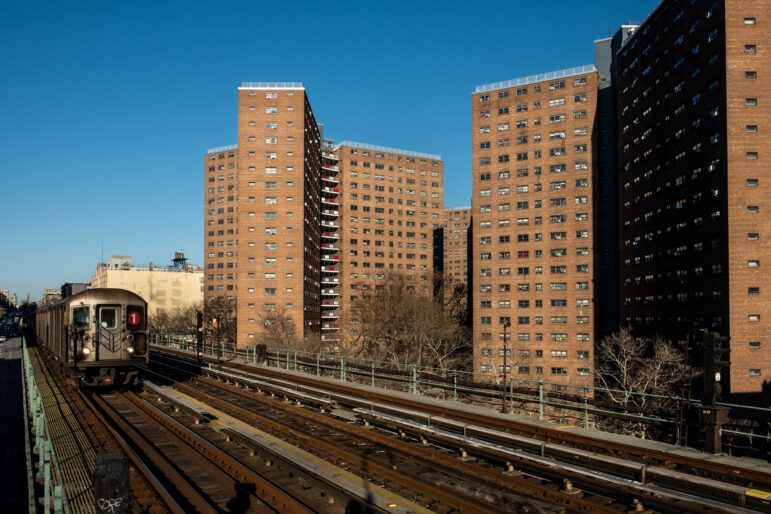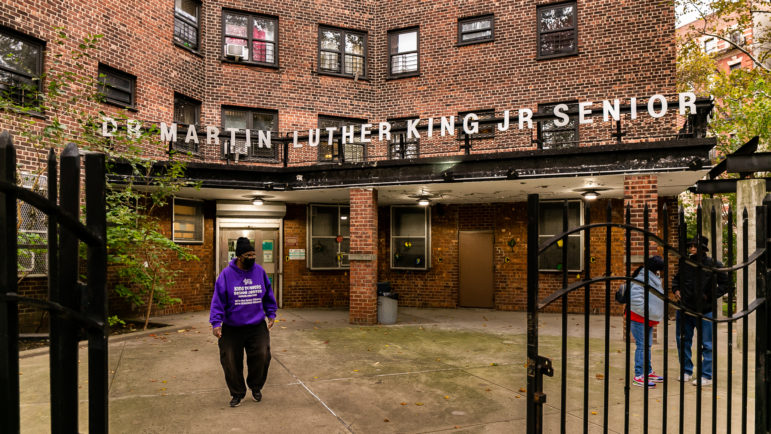Legislation introduced in the City Council Thursday would stop government agencies from buying water in plastic bottles smaller than one gallon. The ultimate goal is to use water coolers or water packaged with paper cartons and aluminum instead.
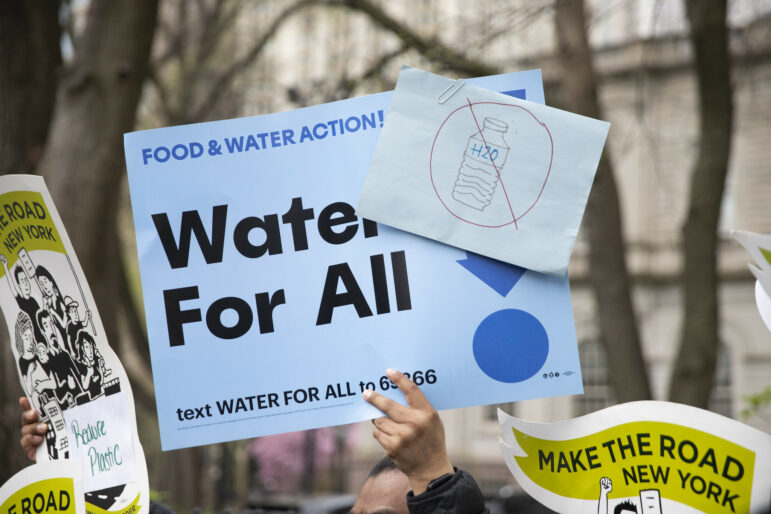
John McCarten/NYC Council Media Unit
A rally to support Councilmember Erik Bottcher’s new bill prohibiting city contracts from purchasing plastic water bottles.Environmental groups and lawmakers are on a mission to stop New York from consuming unnecessary single-use plastic, which means it’s used only once before it gets thrown out. Hundreds of millions of single-use plastic bottles are consumed in the city alone each year.
In an effort to cut back, legislation introduced in the City Council Thursday would stop government agencies from buying water in plastic bottles smaller than one gallon. The ultimate goal is to use water coolers, or water packaged with paper cartons and aluminum instead.
Fragments of plastic often wind up in our bodies and can cause a wide range of health issues like birth defects, lung growth and childhood cancer. One study found that bottled water contains on average 240,000 plastic particles per liter. It’s also bad for the environment: plastic is made from climate-change inducing fossil fuels like oil.
“When you drink a bottle of Fiji water, you might as well be drinking a bottle of oil,” said one of the bill’s sponsors, Councilmember Erik Bottcher.
“There’s absolutely no reason for people to drink a bottle of water that comes from the Pacific Islands,” he added. “Think about how much oil it took to get that bottle of water across the globe. And for what? We have the best municipal drinking water right here in New York City.”
Citing the need to end the city’s reliance on fossil fuels as a key motivator, former Mayor Bill de Blasio signed an executive order in early 2020 to stop city agencies from purchasing or selling single-use plastic bottles.
At the time, New York City’s government was purchasing “at least one million single-use plastic beverage bottles” each year, the order pointed out.
RELATED READING: Chemical Industry Amps Up Lobbying to Block New York’s Waste Reduction Bill
The measure is technically still in effect, but lawmakers and environmentalists warn that an executive order could eventually end if Eric Adams or any future mayor decides to stop enforcing it, or even revoke it.
If the legislation passes, it will prohibit plastic water bottles from being purchased via government contracts for good, keeping them out of city owned-buildings and preventing agencies like the Department of Correction (DOC) from distributing them to anyone under their care, like to those in city jails.
The bill does, however, provide exemptions for when plastic bottles must be passed out for critical public health, safety, welfare, and emergency preparedness needs. So if the DOC relocated inmates to a new facility, for instance, they could still receive bottled water when they are in transit.
While the bill only tackles government contracts—ultimately making a small dent in the city’s larger plastic footprint—advocates say the strategy is to tackle the problem from all angles by passing as much anti-plastic legislation as possible.
The city has already banned the use of plastic straws and plastic utensils in takeout orders unless a customer requests them. New York State also passed a ban on plastic to-go bags in 2020.
Food and beverage packaging makes up about 36 percent of the world’s plastic, approximately 85 percent of which ends up in landfills or as unregulated waste. A lot of it also ends up in the ocean: 33 billion pounds of plastic gets carried out to sea each year worldwide.
“There are billions of single-use plastic water bottles used in this country. If we could make a substantial dent in reducing that in a large place like New York City, that already puts us on the path of more sustainable packaging,” said Judith Enck, founder of the environmental group Beyond Plastics.

Adi Talwar
Food and beverage packaging makes up about 36 percent of the world’s plastic, approximately 85 percent of which ends up in landfills or as unregulated waste.Single use plastic also takes hundreds of years to decompose.
“When I see a plastic bag or a food wrapper on the side of the road, unless someone picks it up, which is rare, it’s going to stay there for centuries,” Enck told City Limits.
Enck and other supporters say tackling city agencies’ purchase of water bottles is a step forward in the ultimate goal of curtailing pollution, safeguarding human health and halting climate change.
“Earth Day is on the horizon, with a mandate to put the Planet over Plastics–and our legislation will help accomplish that crucial mission,” Public Advocate Jumaane Williams, who is also sponsoring the bill, said in a statement.
To reach the reporter behind this story, contact Mariana@citylimits.org. To reach the editor, contact Jeanmarie@citylimits.org
Want to republish this story? Find City Limits’ reprint policy here.


